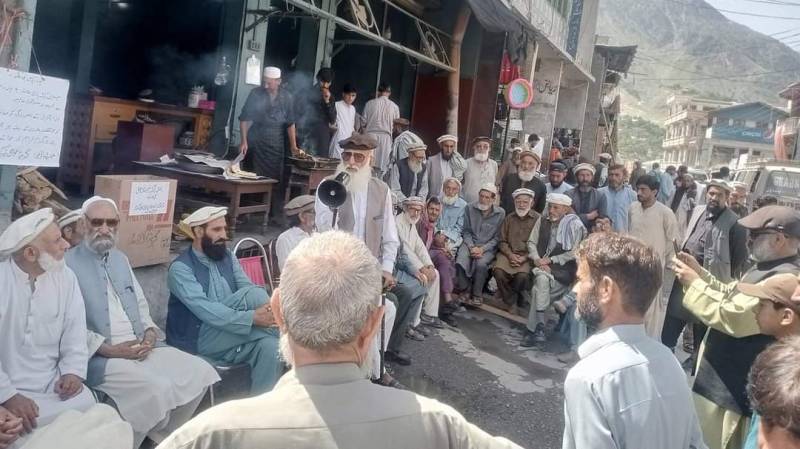
For the last 76 years, Gilgit Baltistan (GB) has been facing serious governance issues, but last few years it has been observed people are protesting for basic human rights in minus temperatures. The current wave of protest started due to the abolishment of wheat subsidies by the GB government.
When Gilgit Baltistan gained Independence from Dogra Raj, they decided to join Pakistan without any condition, but due to Karachi pact between Kashmiri leaders and the Pakistani government, GB was declared as part of the Kashmir dispute without the consent.
According to UN, if any area is disputed, then the government will provide subsidies for more than seventy goods. In the past, the government of Pakistan provided subsidies to the people of Gilgit Baltistan for oil, wheat, PIA tickets and more but over time, the size and amount of subsidies were reduced and only wheat was provided at a subsidised rate.
As GB is financially dependent upon the federal government of Pakistan, with the change of federal government, the wheat subsidy is inevitably affected. In Pakistan, billions of rupees of subsidies every year are allocated for elite industrialists such as fertilizers, cement, transportation and water tube wells. If financial constraint is a real issue, then why are elites enjoying billions of rupees of subsidies? The state tends to support neoliberal policies that favour the elite class and hurt low income and working class.
Unfortunately, the state powers of Pakistan have failed to understand the geography and constitutional status of GB and consequently, with the passage of time people's grievances with the state have increased. This particular region has unique geostrategic importance due to its border with India and China and under the current situation both of them can take advantage of the brewing discontent.
For a minute let's consider the financial constraint when it comes to Gilgit Baltistan as a real and genuine issue - then how did the government arrange winter festivals there? How did they arrange the international expo? How did they increase 300% salaries for the members of the legislative assembly? Why is the cabinet size so large? Why do ministers and advisors enjoy full government patrol? Such acts by the government also failed to justify their act.
The federal government of Pakistan and local government of GB have both failed to manage the current wave of protests. Now the “Awami Action Committee Gilgit Baltistan” has presented a charter of demands that consists of fifteen points. These include a wheat subsidy, cancellation of the Finance Act, local ownership of lands, replacement of GB assembly with a constituent Assembly, awarding of mining lease to the local, royalty of Dimer Basha dam, and the construction of medical and engineering universities.
In the case of wheat subsidy, first, due to special constitutional status, the government of Pakistan cannot reduce the amount and size of subsidies for GB, and secondly if the financial constraint is the main barrier to the provision of subsidy, the above-mentioned points should be considered.
As soon as the people of GB began to demand their basic rights, the government of Pakistan stated this region is disputed area and included the local political leaders in Schedule-4 which is an anti-terrorism act.
Interestingly for the implementation of the Finance Act, the allocation of PSDP projects to FWO, for CPEC, for construction of dams, and allocation to mining leases to Pakistan and international companies this area become part legal and constitutional part of Pakistan.
During the whole process when the people began to protest, the national electronic media of Pakistan blacked out in its reportage. When the government of India removed Article 370 in Kashmir the same media highlighted it as being against basic human rights but now when the people of GB have asked their basic human rights there is no news about it.
For the media of Pakistan marriage news of a cricketer and actress became breaking news, but there was no widespread coverage about the protests of people in peripheral regions. All the state powers and actors have ignored this region for the last 76 years but now the time has come to listen voices of local and indigenous people and respect their choices and demands.

